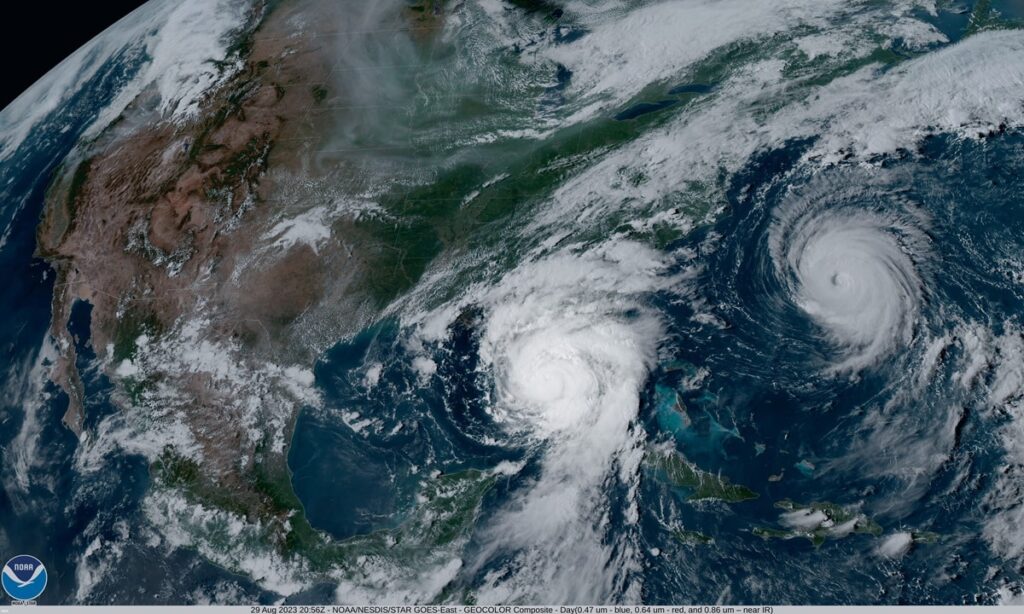The Gulf Coast is no stranger to hurricane season. Each year, between June and November, locals and homeowners from Texas to Florida brace for the potential impact of powerful tropical systems that can bring heavy rains, destructive winds, storm surges, and widespread property damage. For those living in coastal Alabama, preparation is a yearly ritual—but one that has become more important than ever due to shifting weather patterns and increasingly severe storms. While stocking up on supplies and reviewing evacuation routes are vital steps, building a home that’s truly prepared for hurricane season starts long before any storm is named. That’s where resilient construction methods, particularly ICF (Insulated Concrete Form) wall systems, come into play.
As a local custom home builder specializing in ICF construction, we understand the unique challenges homeowners face along the Gulf Coast. We also know the power of thoughtful, hurricane-resistant building techniques to make a lasting difference—not just for peace of mind, but for the long-term safety, comfort, and financial well-being of your family. In this blog, we’ll take a closer look at what to expect from the upcoming hurricane season, why resilient construction matters more than ever, and how ICF walls are raising the standard for storm-resistant homes in coastal Alabama.
What the 2025 Hurricane Season Could Bring
Each year, the National Oceanic and Atmospheric Administration (NOAA) and other weather prediction centers release forecasts for the upcoming hurricane season. These predictions, based on ocean temperatures, wind shear patterns, and long-term climate indicators like El Niño or La Niña, help coastal communities prepare for what’s ahead. For 2025, experts are expecting an above-average season, citing elevated Atlantic sea surface temperatures and early indicators of increased storm activity in the tropics.
Although forecasts can’t tell us exactly when or where a storm will strike, they do paint a clear picture of elevated risk for the Gulf Coast region. Recent years have seen a notable uptick in rapidly intensifying storms and record-breaking rainfall totals. This trend puts homes that were built with outdated construction methods or minimal storm resistance at greater risk—not just of flooding or wind damage, but of total structural failure in extreme conditions.
For locals and newcomers alike, now is the time to think critically about your home’s ability to stand up to what may lie ahead. And that begins with the materials and methods used in its construction.
Why Storm-Resilient Construction is Non-Negotiable
Living on the Gulf Coast comes with undeniable perks—gorgeous sunsets, beachside living, and a laid-back lifestyle that’s hard to beat. But it also comes with a level of weather-related risk that homeowners must take seriously. Traditional wood-frame construction, while widely used, simply doesn’t offer the same level of resistance to hurricanes as newer, reinforced building techniques. This has prompted many architects, engineers, and homeowners to seek out alternatives that provide not just code compliance, but peace of mind.
Storm-resilient construction isn’t just about surviving the next big hurricane. It’s about minimizing repair costs, keeping insurance premiums manageable, and ensuring you have a safe place to return to when the storm passes. Whether you’re building a new home or looking to upgrade your current property, investing in strong, impact-resistant building systems is one of the smartest decisions you can make in hurricane-prone areas like Baldwin County.
What Makes ICF Walls Ideal for Hurricane Zones
ICF, or Insulated Concrete Form, construction is one of the most effective ways to safeguard your home against extreme weather. Unlike traditional wood framing, ICF walls are made by pouring reinforced concrete between two layers of rigid insulation, creating a solid, energy-efficient, and nearly impenetrable structure. For homeowners along the Gulf Coast, this translates to a host of benefits during hurricane season—and every season.
First and foremost, ICF walls offer superior wind resistance. These walls can withstand wind speeds of over 200 miles per hour, far exceeding what standard stick-frame construction can handle. In hurricane-prone areas where wind-driven debris can turn everyday objects into dangerous projectiles, this strength makes a critical difference.
Additionally, the dense, continuous construction of ICF walls offers excellent protection against water intrusion and flying debris. The monolithic nature of the walls leaves fewer gaps for moisture to seep through, helping to reduce the risk of mold, rot, and interior damage following a major storm. And because the structure is reinforced with steel and concrete, the overall integrity of the home remains intact even under the stress of high winds and heavy rainfall.
Energy Efficiency, Comfort, and Quiet—Even During the Storm
While hurricane resistance is reason enough to choose ICF construction, it’s far from the only benefit. One of the often-overlooked perks of ICF walls is how comfortable they make your home, regardless of the weather outside. The insulating layers built into each wall dramatically improve your home’s thermal performance, reducing heating and cooling costs year-round. During a power outage—a common occurrence during and after hurricanes—ICF homes retain temperature stability longer than those built with traditional framing.
And let’s not forget the soundproofing benefits. Anyone who’s ridden out a storm knows how unnerving the howling winds and battering rain can be. ICF walls provide a quiet refuge, buffering your home against exterior noise so you can rest more easily—even when the weather is anything but calm.
Durability That Lasts for Decades
Beyond their weatherproof qualities, ICF walls are incredibly durable. Unlike wood, which can warp, rot, or attract pests, concrete-based structures hold up over time with minimal maintenance. For coastal homeowners, this means lower long-term costs, fewer repairs, and better resale value. In fact, many insurance providers recognize the strength of ICF homes and offer policy discounts as a result.
This long-term durability is essential when you consider the growing intensity and frequency of storms. A home that is built to last isn’t just a smart investment—it’s a proactive step toward protecting your family and your property for generations to come.
A Custom Home for Your Lifestyle—And Your Peace of Mind
Every homeowner has a vision for what their ideal home should be. At our custom home building company, we specialize in making that vision a reality—without compromising on safety or resilience. Whether you’re building a full-time residence, a vacation getaway, or a retirement retreat along the Gulf Coast, we integrate ICF technology and other storm-resistant materials to create homes that are as beautiful as they are strong.
We work hand-in-hand with our clients throughout the design and construction process, ensuring that your priorities—from layout to aesthetics to budget—are fully addressed. At the same time, we ensure that every home we build meets or exceeds the highest standards for hurricane resistance. Because here in coastal Alabama, being prepared isn’t optional—it’s essential.
Don’t Wait Until It’s Too Late to Build Smart
Every year, storms serve as a sobering reminder of how critical it is to build with resilience in mind. We’ve seen the devastation left behind when homes aren’t adequately prepared—and we’ve seen the relief and gratitude of clients whose ICF homes weathered major hurricanes with minimal damage. Your home should be your sanctuary. With smart planning, expert craftsmanship, and proven materials, it can be.
Now is the time to plan ahead. If you’re considering building a new home in Baldwin County or anywhere along the Gulf Coast, let’s talk about how ICF construction can protect your investment, enhance your daily comfort, and give you lasting peace of mind in the face of whatever the season may bring.
Final Thoughts: Coastal Living with Confidence
Living near the coast should be a joy—not a source of anxiety every time a storm forms in the Gulf. With the right construction partner and the right materials, it’s possible to have the best of both worlds: a stunning, custom-built home that embraces all the beauty of coastal life while standing strong against its challenges.
As the 2025 hurricane season approaches, we encourage all homeowners and future homeowners in coastal Alabama to think not just about short-term preparation, but about long-term protection. ICF wall construction is more than a smart choice—it’s a forward-thinking solution for those who want to build smarter, live safer, and weather the storm with confidence.
Let us help you build a home that’s ready for anything.





